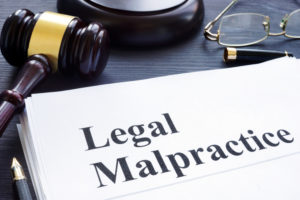
The Centers for Disease Control (CDC) attributes 25 percent of all traumatic brain injury-related hospitalizations in the United States each year to motor vehicle crashes. Any vehicle crash resulting in a traumatic brain injury (TBI) is frightening. A vehicle crash involving a large truck, where blows to the head can be extremely violent, can be terrifying.
Unfortunately, in 2020, despite the pandemic and stay-at-home orders in place, there were still more than 154,000 large truck and bus crashes on America’s streets and highways. In addition, there were more than 4,700 fatalities and 76,000 injuries due to large trucks and buses.
Even at low speeds, crashes involving a large truck frequently result in catastrophic injuries ranging from loss of limbs to broken and shattered bones to damage to the spinal cord and even death. However, perhaps the most challenging injury to treat and recover from after a truck wreck is a TBI and post-concussive syndrome.
What Is a Decrease in Initiation with a Brain Injury?
While a person may show visual signs of a TBI like loss of facial muscle, movement, motor control, and ability to control mood, most effects of a TBI are hidden, including a decrease in initiation.
If a trucking accident victim has a TBI and has suffered a decrease in initiation, that person may behave erratically, appearing as if the person is lazy, unmotivated, and unwilling to perform particular actions. Other times the person may appear defiant. However, it is important to understand that victims of a TBI who are suffering from a decrease in initiation may not be able to follow through with certain actions or tasks. They are very often misunderstood.
The Brain Injury Association of America (BIAA) explains “decrease in initiation” this way:
Damage to the frontal lobe of the brain may result in myriad deficits, and an injury to this area is frequently associated with changes to one’s executive skills, which involve the planning, coordination, and execution of daily tasks. Initiation is part of this skill set, and it normally involves your “internal monitoring system” identifying the need to act and then letting you know when it’s time to get started.
When a brain injury occurs, this system can be interrupted. While a person with a TBI may understand and be able to state what needs to happen next, it may be difficult to follow through and do what needs to be done.
Here are two examples of a decrease in initiation. When a healthy person hears the doorbell ring, she will process hearing it and will simply answer the door. However, for those suffering from a decrease in initiation, they would hear the doorbell, but they would not react and would not stand up and answer it.
Under normal circumstances, a person who participates in a conversation typically knows when to speak and participate in the activity. However, for someone with a decrease in initiation, this isn’t the case. If the injured individual was in the middle of a group conversation, he may not be able to be an active participant and cannot contribute to the conversation.
Help for Those Struggling with Decreased Initiation
The BIAA stresses that treating decreased initiation is most successful when the injured individual works with a team of specialists, including a physical therapist, an occupational therapist, and a speech-language pathologist. Along with help from professionals, here are some other strategies to help those struggling with decreased initiation:
Creating routines. Establish repeatable routines and schedules and try not to deviate from them to increase independence with initiating the next step. For example, each night before bed, build a routine such as changing into pajamas, brushing teeth, taking medications, and then laying down. Keeping the routine the same allows someone to initiate the next activity without deciding what should come next.
Setting alarms. Use a timer or a cell phone to set alarms to help trigger the individual to start or switch a task. These can serve as useful reminders that prompt initiation.
Using visual reminders. Use signs, pictures, to-do lists, or written schedules to help identify the next steps involved in tasks throughout the day.
Being patient. Provide increased wait time for the person to complete a task or to respond in a conversation. This will allow their brain time to process the next step or the question they were asked.
Trying self-monitoring techniques. Questions to ask oneself to prompt initiation might include “What am I doing now?” and “What needs to be done next?”
How Truck Accident Lawyers Can Help
All drivers should be aware that on any given day, thousands of working trucks are traveling the highways in the U.S. At the end of 2020, there were 3.6 million truck drivers at work, moving about $800-billion worth of goods across the country. And, for Ohio specifically, the state has been ranked as one of the top ten states for truck and bus fatalities by the Federal Motor Carrier Safety Administration.
To keep everyone safe and reduce the risk of catastrophic injuries like TBIs, individuals must always remember to use caution on the road, especially when driving near large trucks. Develop good habits. Keep a safe distance from trucks (and all vehicles), don’t cut trucks off or tailgate, and always keep your eyes on the road.
Even as a safe driver, you still may find yourself the victim of a truck accident. If you are injured in a car crash and believe you have suffered a brain injury, there may be long-term costs associated with treatment, including doctor and rehabilitation bills, loss of work and salary, and, unfortunately, long-term care. It is important to seek legal help from a truck accident attorney to receive the compensation owed to you due to someone else’s negligence. When it comes to figuring out the cause of your truck accident and who is liable, Murray & Murray has years of experience helping Ohio truck wreck victims. Contact us online or call 419-664-3711 for more information or to discuss possible legal options.

Partner at Murray & Murray Co., L.P.A.














Comments for this article are closed.